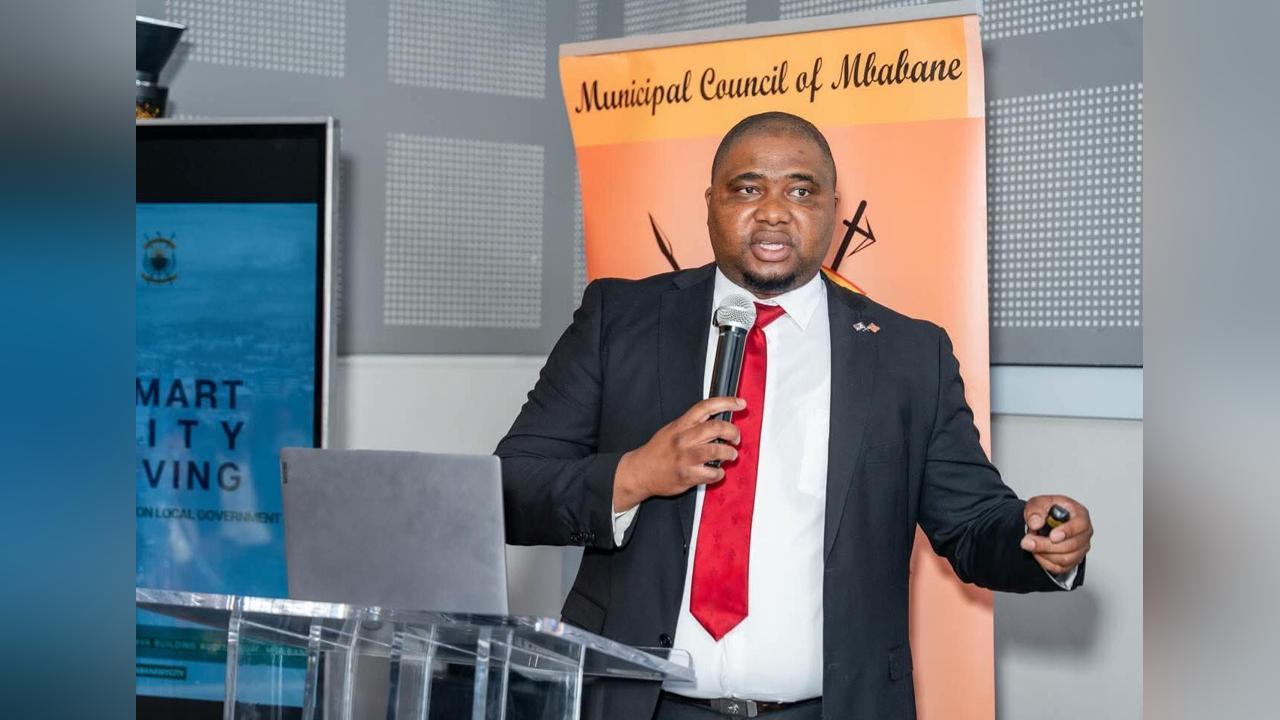Africa-Press – Eswatini. Contrary to popular belief, paying rates in Eswatini’s urban areas is affordable when compared to other regular monthly expenses.
This was the message from Sibusiso Magagula, Revenue Manager at the Municipal Council of Mbabane, who addressed participants during the first-ever Master Class on Local Government held on 28 August 2025 at the MVA Building in Mbabane.
The event, organised by the Municipal Council, carried the theme “Property as an Asset” and drew a high-profile audience, including Minister of Housing and Urban Development Apollo Maphalala, Eswatini Bank Managing Director Her Royal Highness Queen Dr Nozizwe Mulela-Zulu, Director of Eswatini Realty Consultancy Paul Malichi, and Mbabane East Member of Parliament Welcome Dlamini.
Although organisers had reserved 80 seats, interest far exceeded expectations, with more than 400 people expressing a desire to attend. The event was directed by Mbabane CEO Gciniwe Fakudze, who announced that similar master classes would now be held quarterly.
Breaking down the costs
In his lively presentation, which kept the audience engaged and often in stitches, Magagula compared the costs of rates to common household expenses in towns and cities.
He noted that the average urban family spends around E6 000 per month on groceries. Maintaining a vehicle, including insurance, could add another E2 000 depending on the type of car. Utilities and services such as water, electricity, data, and DStv subscriptions could easily bring monthly bills to a further E2 000.
“In total, an ordinary family can spend close to E10 000 each month just to maintain their lifestyle,” Magagula explained. “Yet in all my years working in local government, I have never come across a property with rates exceeding E18 000 a year. That translates to just E1 500 a month.”
He questioned why residents frequently complained about “skyrocketing” rates, pointing out that it was actually other household expenses that had risen sharply over the years. “Groceries, cars, data – all of these depend on the very houses whose rates need to be paid. Without properties, these services wouldn’t even be usable. Yet some residents still resist paying rates, which cost far less.”
Rates fund essential services
Magagula reminded participants that rates are not arbitrary charges, but a crucial source of revenue enabling urban governments to provide services.
“These funds allow councils to fulfil their obligations under Section 55 of the Urban Government Act of 1969, which outlines the services municipalities are mandated to deliver. Residents in turn have the right to demand these services through the councillors they elect,” he said.
Minister urges property ownership
Minister of Housing and Urban Development Apollo Maphalala urged emaSwati to be bold in taking steps to acquire property in urban areas, emphasising that towns and cities belonged to their citizens.
He warned against allowing foreign nationals to dominate the property market, saying that some emaSwati had failed to seize opportunities due to financial limitations. In one case, he revealed, he personally intervened to block a property sale to a non-citizen when locals were unable to purchase.
“These cities are ours,” he said firmly. “It is emaSwati who must decide how they are run, not outsiders.”
Banks urged to play a bigger role
Her Royal Highness Queen Dr Nozizwe Mulela-Zulu, Managing Director of Eswatini Bank, encouraged citizens to approach financial institutions to learn how they could be assisted in acquiring property. She also advised young people to exercise patience when venturing into the property sector or other business ventures.
Eswatini Realty Consultancy Director, Paul Malichi, echoed her sentiments, describing property as a reliable hedge against inflation. “Property values rise over time. Owning property secures families against economic shocks and creates lasting value,” he said.
MP calls for empowerment of youth and citizens
Mbabane East MP Welcome Dlamini called on banks to educate emaSwati about pathways to property ownership, particularly the youth. He cautioned that the failure to empower locals risked turning Mbabane into a city owned largely by foreigners.
“Look at Mountain View – many of those properties are now owned by foreign nationals. They began as tenants and later became landlords, while emaSwati were left behind. We cannot let our people become foreigners in their own land,” he said.
Dlamini also criticised certain institutions and professionals whom he accused of deliberately making it harder for locals to buy property. He singled out a financial institution that allegedly conducted a study on the country’s financial landscape but withheld the findings from the public. “Such secrecy only keeps ordinary emaSwati away from opportunities to grow their economy,” he argued.
A mindset shift needed
The MP further urged emaSwati to change their attitudes towards their cities. “Mbabane is one of the most beautiful cities in the SADC region. In some African cities, shanty settlements exist right in the centre, yet residents remain proud of where they live. We need to embrace the same pride and take ownership of our city,” he said.
Looking ahead
The Master Class underscored the importance of property ownership, ratepayer responsibility, and financial empowerment in urban Eswatini. By comparing rates with everyday household expenses, Magagula sought to demystify a long-standing concern and reposition rates as both affordable and essential for sustainable urban development.
With calls from government, banks, and legislators converging on the same theme, the event signalled a push towards greater citizen participation in property ownership and local governance. The overwhelming interest from the public suggests that future master classes could play an even greater role in shaping how emaSwati perceive and engage with their urban spaces.
For More News And Analysis About Eswatini Follow Africa-Press







